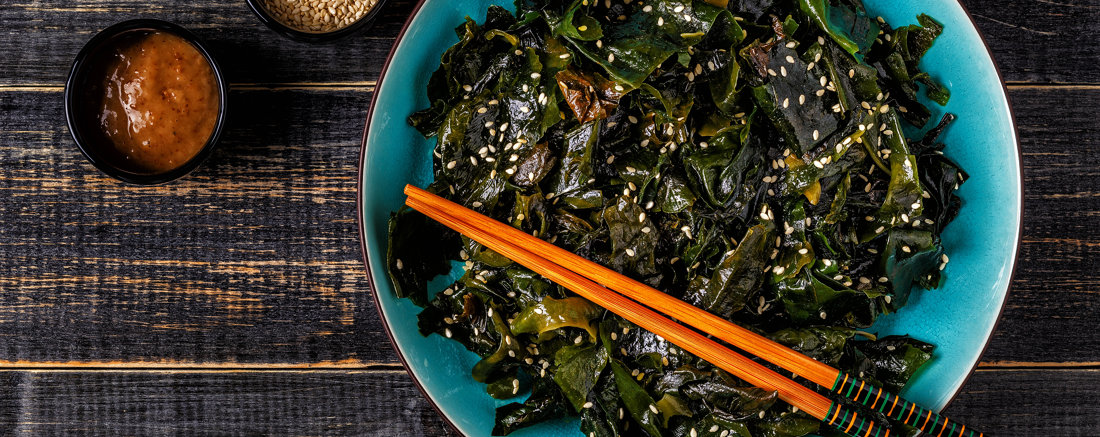
In the oceans live about 500,000 species of living beings, from plankton and microalgae to gigantic whales. The sea was and remains the origin and an excellent biological reserve.
Algae are photosynthetic organisms and they range in size, from microscopic species to giant ones. Their ecological role is very important, as they are oxygen producers and food base for almost all aquatic life.
Algae is one of the oldest living beings on the planet. A natural resource that renews itself every year in the sea and is therefore a stable and sustainable food.
They can be developed into many kinds of products, such as natural food ingredients, marine functional food, marine drugs, marine biomedical materials, seaweed cosmetics, products for agriculture (seaweed fertilizer, biological pesticide, etc). The consumption and interest in them continues to increase all over the world.
Seaweed is part of a healthy diet and is used in herbal medicines in many traditional cultures, as well as excipients and active principles in the treatment of different diseases.

Edible Algae
On the European coast, there are sea regions especially rich in edible seaweed, in which the variety and the quantity of species distinguish them from the rest. More than a fad, algae is a food for centuries, rich in minerals and essential trace elements, can help solve problems of iron and iodine deficiency, which cause diseases such as weakness, depression and anemia.
Extracts from algae for food, industrial and research purposes, are some of the use they carried out.
Benefits of Seaweed
Seaweeds are scientifically recognised as a food with a high nutritional value. A foodstuff rich in proteins (essential amino acids), minerals, trace elements, vitamins and other specific nutrients, such as polyunsaturated fatty acids. They have dietary fiber and low overall lipid content. Algae contain, in sufficient quantities, all the elements needed by the human body and the characteristics we look for in a healthy diet. The unique properties of seaweed, make it beneficial to the body in several ways:
Uses
Algae can be added to all kinds of food, as a complement to almost any dish. You can add them in salads, soups, cereals, other vegetables, omelets, pulses etc. Use all the different types and vary them from day to day, just as you do with other vegetables.
